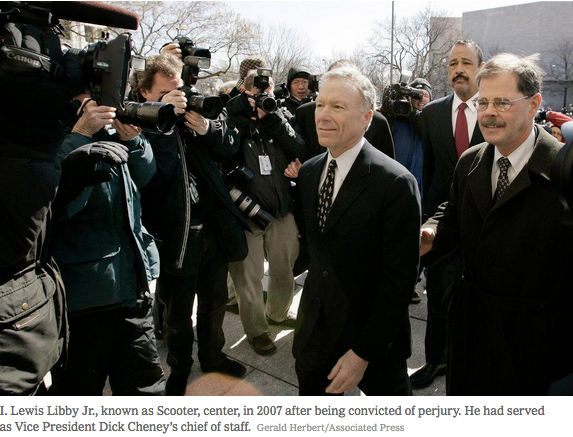. . .
Mr. Trump’s action does nothing to change the past.
But it might change the lives or convictions of people whom President Trump does know: his own personal firewall. By pardoning Mr. Libby, Mr. Trump sends a message to Paul Manafort, Michael Cohen and any of his other close aides who are facing or may face potential prosecution pursuant to the investigation by Robert Mueller, the special counsel.
Mr. Manafort was indicted in October for hiding that he was working for a Russian-backed Ukrainian party while lobbying in the United States; charges against him could put him away for the rest of his life. F.B.I. agents raided the home and offices of Mr. Trump’s longtime lawyer Michael Cohen this week; according to the Department of Justice, he is under criminal investigation by the Southern District of New York, and he may face charges of bank and wire fraud for paying hush money to prevent news of past sexual affairs from becoming public during the election. By pardoning Mr. Libby, Mr. Trump sends a message to those who might incriminate him in crimes related to conspiring with Russians to tamper with the election: The message is that he will rectify any sadness that protecting a president might cause.
The thing is, Mr. Trump is unlikely to be able to use his pardon power to get out of his legal jam. That’s because several of his potential firewalls — Mr. Manafort, Mr. Cohen and his son-in-law, Jared Kushner — could be charged at the state level for the financial crimes they’re suspected of. A federal pardon would simply move their prosecution beyond Mr. Trump’s control.




